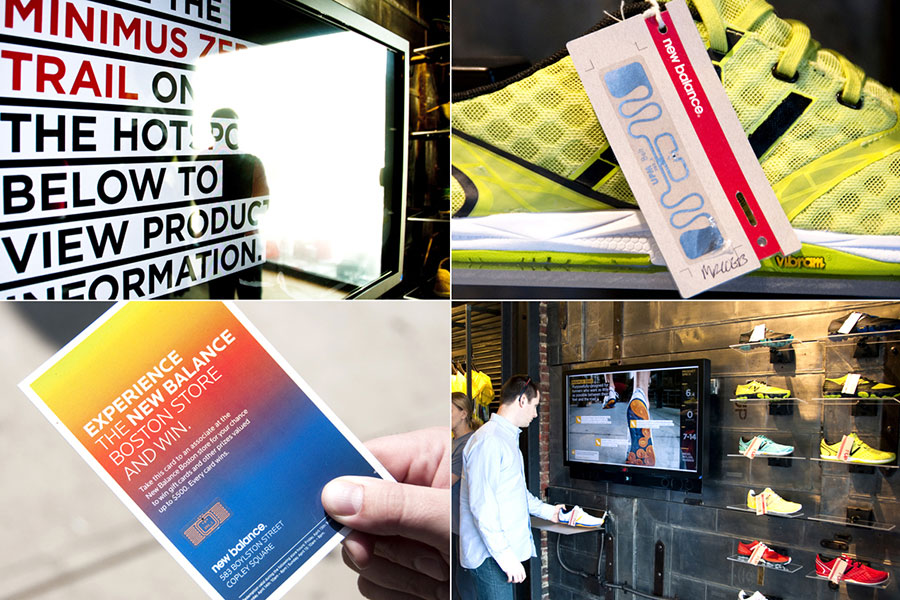RFID & clothing: How technology is quickly changing the landscape of fashion
29 September 2021
Image Credit: Aaron Scott
Imagining our worlds without technology is simply unthinkable now. Technological advancements have meant that almost everything we do is regulated, automated or enhanced through technology. While the fashion industry has been guilty of being slow to adapt to new technology, COVID-19 has transformed the industry in a way that couldn’t have been conceived.
Like in any other business, the more efficient a fashion company’s operations are, the more money and time is saved – which is why implementing RFID technology is an absolute no-brainer.
RFID (Radio Frequency Identification) refers to technology whereby products are tagged with a RFID label to be captured by a reader through radio waves and frequencies.
RFID isn’t exactly new. It can be traced back to World War II when it was used to warn approaching planes of enemies. It is highly effective for storing information digitally, and the stored information is shared between devices through electromagnetic fields and radio waves.
But what does this have to do with fashion? In this blog post we look at some of the ways implementing RFID can transform how your fashion business operates.
Combating counterfeit products
In Europe alone the fashion industry loses approximately £26.3 billion annually and about 363,000 direct jobs as a result of counterfeit products. Brands such as Moncler have been using RFID tech to provide their customers with the ability to scan their products via an app or website to verify its authenticity.
Improving the in-store shopping experience
As the fight for creating the best in-store experience continues, luxury brands Ralph Lauren and Burberry have transformed the in person shopping experience, curating a journey like none other.
At Burberry, RFID tags are placed in products in their “500 stores spread across 50 countries which can communicate with shoppers’ mobiles, giving information about how items were produced or recommendations on how they can be worn or used” according to Forbes.
Rebecca Minkoff’s use of RFID brings customers a stress-free and fast shopping experience. The store is kitted with RFID tablets and iPads; you simply place the item you want to purchase on the table, the technology identifies the item and you pay for it via the iPad.
Have you ever tried on something at a store and wondered if it was available in another size or colour? At Ralph Lauren’s flagship in Manhattan all you have to do is take an item into the fitting room and their RFID technology identifies the item in your hands. It then provides you with a list of the available colours and sizes on a screen, answering your question before you’ve even asked.
Controlling inventory
Global fashion giant Zara has proven time and time again to be a leader in efficiency and their use of RFID is no exception. Tagging their clothing with RFID allows staff to know exactly where garments are in their stock room and to control what and when to re-stock.
Not only does the stockroom get notified of exactly what products to restock when something is purchased, stock controllers can also do inventory in less than a sixth of the time it used to take.
Having this degree of control of your stock means knowing exactly what needs to be produced or ordered to replenish, without overshooting and overspending.
Easier event planning
With more and more venues opening their doors again and fashion events underway, you may have already used an invitation with a barcode, which is scanned upon entering the event.
However, many event planners are now implementing RFID technology and event organization software to optimize the check-in process. The tags are inserted into the invitations, invisible to the naked eye, and antennas are used at the entrance to detect when someone with an invitation has arrived. A signal is sent to the event organiser’s phone and the guest’s info pops up on the screen indicating where the guest is to be seated and any other relevant information.
It’s clear that the fashion industry is more and more reliant on technology to bring new business, keep existing clients and remain ahead of the game. The latest technology is now a staple in the fashion world and we’re really excited about how RFID is transforming and streamlining processes.
What other ways have you seen RFID used in the industry?
Elite labels is a supplier of RFID labels, helping take forward-thinking fashion brands to new heights. Whether you’re a leading fashion house, a high street retailer or an exciting start up, our expert team is ready to help turn your vision into reality. Get in touch today by emailing us info@elitelabelsltd.co.uk.